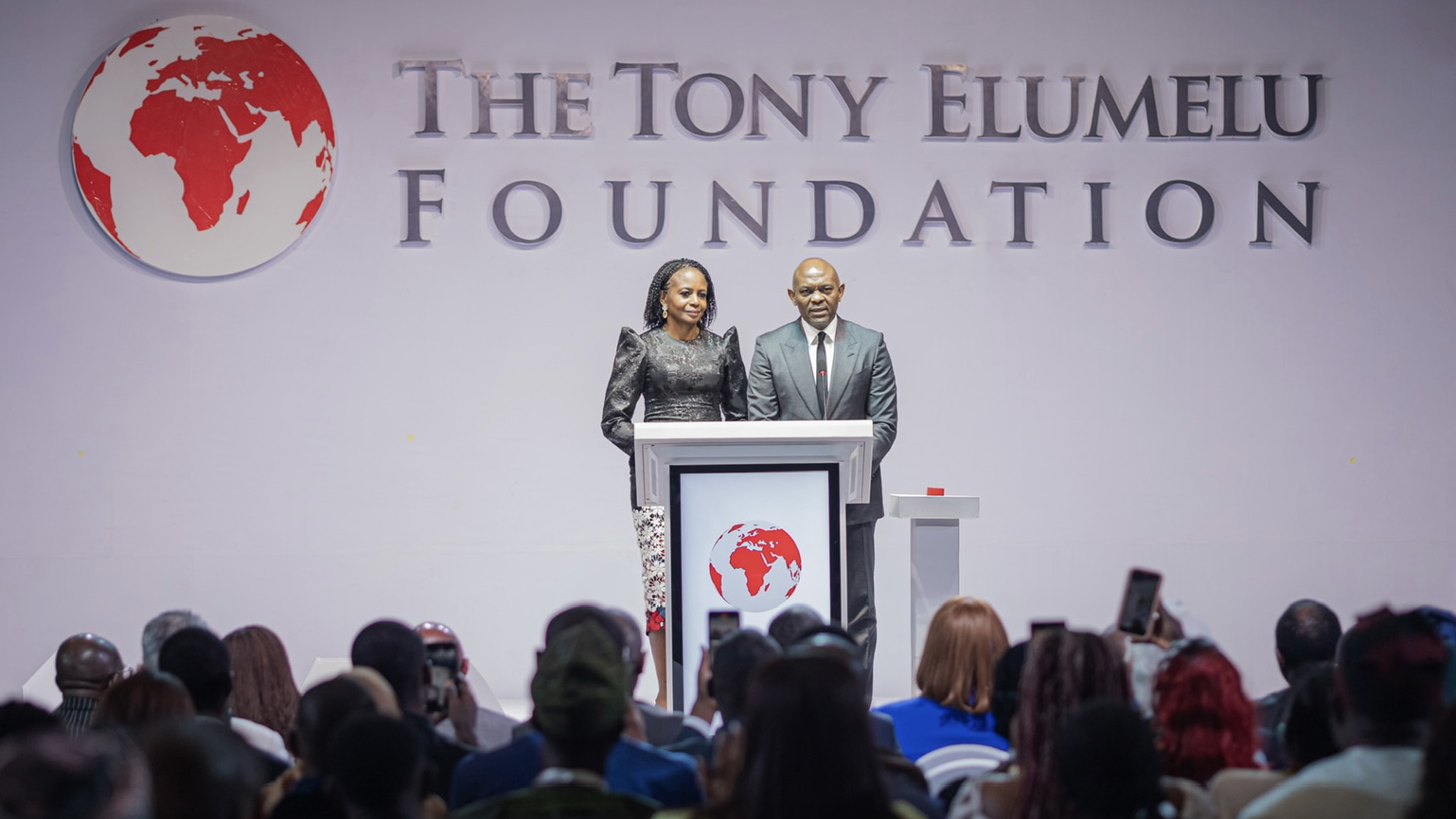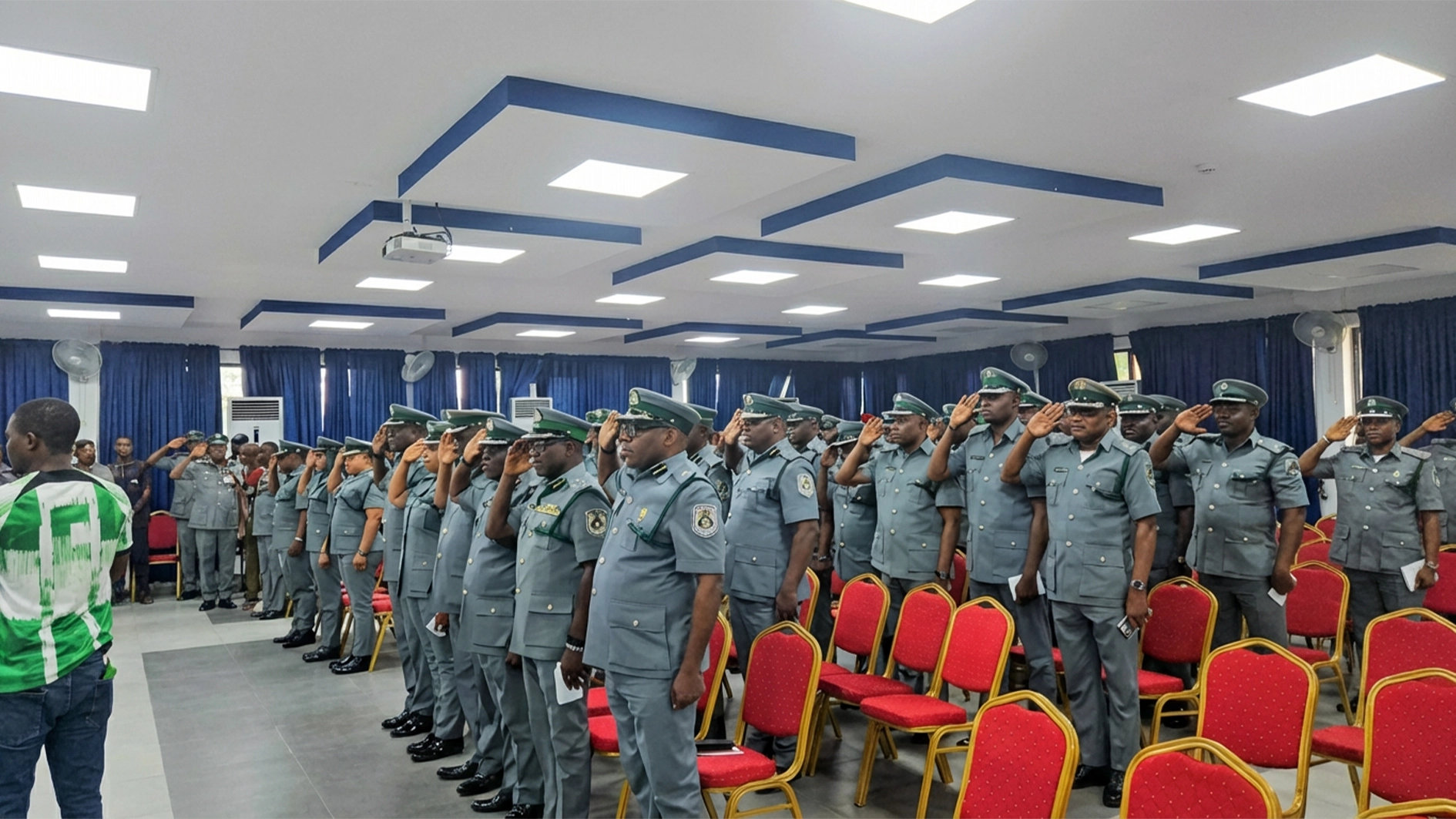• Atiku wants Nigerians to elect a new INEC chairman, RECs
• Body seeks law to bar party members, appointees from INEC jobs
• Concerns as supporters hoist Tinubu’s banner at INEC’s Lagos office
The one-week analysis of the new voter registration conducted by the Independent National Electoral Commission (INEC) yesterday drew some flak from the opposition parties, as they raised an eyebrow over the 1,379,342 Nigerians pre-registered online nationwide between August 18 and 24.
According to the data released by the Commission, there was a significant turnout in certain states, with Osun State leading the pre-registration with 393,823 registrants (28.51 per cent), followed by Lagos with 222,205 registrants (16.11 per cent). In contrast, Ebonyi State recorded the lowest number with just 261 pre-registrations.
The electoral umpire, however, responded, saying the record is consistent with the 2021/2022 CVR exercise, when Osun State topped all. Firing the first shot, the African Democratic Congress (ADC) accused INEC of laying the ground for data manipulation in the Continuous Voter Registration (CVR) ahead of the 2027 general elections and called for a forensic audit of the figures, especially from the South-West.
The ADC also called on all opposition political parties to come together and demand accountability and integrity of the electoral process, just as it invited the international community to pay keen attention to the unfolding developments in the Nigerian polity.
The party, in a statement issued in Abuja by its National Publicity Secretary, Bolaji Abdullahi, said it is raising this concern early over what it described as “statistically implausible” figures released by INEC in its first-week report on the new CVR Voter.
According to the statement, the numbers from Osun alone defy both historical patterns and demographic realities, with nearly 400,000 new registrations reportedly completed in just seven days. The statement further warned that such “suspicious figures”, if left unchecked, could undermine confidence in Nigeria’s entire electoral process.
The party therefore called on INEC to explain how it is that in Osun State, one week’s registration exceeded the total number of new voters recorded in the state over the last four years combined, while the South-West zone alone accounted for an extraordinary 67 per cent of all pre-registrations nationwide.
“To put this in context, Osun added only 275,815 new voters between 2019 and 2023, a period of four years. In other words, Osun has now supposedly registered more people in seven days than it managed to do in an entire electoral cycle of four years.
“Even at its highest point of political mobilisation in 2022, Osun has never produced more than 823,124 votes cast in the governorship election. Now, by some miracle, nearly 20 per cent of all eligible adults in the state have rushed to register. This is not just unusual, it is statistically implausible.
“These fantastic figures suggest either another technical ‘glitch’ in INEC’s digital registration system, or a more troubling possibility of deliberate manipulation of data to lay the ground for a more sinister agenda in the coming elections. In either case, INEC has some explanations to give.
“We must be clear: the voter register is the foundation upon which the entire electoral process rests. If the foundation is compromised, it brings the integrity of the elections into question. Nigerians still remember the bitter consequences of flawed voter rolls and “technical glitches” in past elections. Our democracy cannot withstand another one,” it reiterated.
Also raising an alarm, the Peoples Democratic Party (PDP) warned that weak institutions and political manipulation could undermine the credibility of the 2027 general elections. PDP Deputy National Legal Adviser, Okechukwu Osuoha, described the sharp surge in new registrations in some states, particularly Osun, as symptomatic of Nigeria’s fragile governance structures.
“In Nigeria, our institutions are not strong. That is why policies and programmes are often encumbered and manipulated. Those in power can influence electoral officers in their states to undermine the process. If our institutions were strong, like in the Western world, nobody within INEC would allow the system to be compromised,” Osuoha said.
“In one state, nearly 400,000 new registrations were recorded in a single week, while the combined total for several other states barely reached 4,500. This is a clear sign that something is wrong.”
The PDP chieftain recalled similar manipulation in past census figures and elections. “When elections are conducted in Kano, you see them coming out with over two million votes, while in my state, we struggle to reach even 800,000. The same happens with population counts. This shows a lack of transparency and honesty in our system,” he said.
Osuoha stressed that beyond the figures, voter apathy following the 2023 elections posed a major threat to democracy. “It’s not just about registration numbers. Many Nigerians are disillusioned after the 2023 elections. We need enlightenment and education to make people more interested in the process and to demand transparency,” he added.
INEC fires back
In its pushback, INEC knocked the ADC over claims that the number of pre-registrants recorded in Osun State during the first week of the continuous voter registration (CVR) exercise was statistically implausible.
Chief Press Secretary to the INEC Chairman, Rotimi Oyekanmi, in a statement on Thursday, said the figures released showing Osun State with 393,269 pre-registrations between August 18 and 24, 2025, were consistent with historical trends and not inflated, as alleged.
He said: “The attention of the Independent National Electoral Commission (INEC) has been drawn to a press statement attributed to the spokesperson of a political party on the data published by the Commission on the online pre-registration of voters.
“In particular, the statement claimed that the number of pre-registrants in Osun State defies “historical patterns and demographic realities.” Nothing can be further from the truth.
“It will be recalled that the Commission rolled out the online pre-registration of voters on August 18, 2025, followed by in-person registration on August 25, 2025. In its usual tradition, the Commission released the data of online pre-registrations from August 18-24, totalling 1,379,342. In the figures released, Osun State led the pack with 393,269, followed by Lagos State – 222,205. The Federal Capital Territory was third with 107,682.
“With regard to Osun State, the pattern is similar to what occurred in June 2021 when the Commission launched the online pre-registration for the first time. Within the first 24 hours of launching the portal on June 28, 2021, 59,331 accounts were created.
“By the second week on 12th July 2021, a total of 456,909 accounts were active. Interestingly, Osun state led with 154,893 pre-registrations at the time. In the third week, 752,011 persons had pre-registered and Osun State was at the front with 232,880.
“By the eighth week on August, 23 2021, 2,215,832 persons had pre-registered with Osun State still leading with 365,412. In the 11th week of the exercise on 13th September 2021, 2,953,094 individuals had pre-registered, with Osun State still in the lead with 402,619. By 18th April 2022, a total of 8,271,647 Nigerians had pre-registered, and Osun was ahead of all States with 708,782 registrations.”
This is just as a banner suspended in front of the INEC Lagos office at Ikeja, raising awareness about voter card registration, with the image of President Bola Tinubu, and the logo of Youth Professionals for Tinubu (YP4T) as sponsor, is raising concerns over the banner’s non-adherence to INEC’s non-partisan stance and its implications on the Commission’s independence.
The banner, which was a voter’s card registration entreaty to the public, had the bold image of President Tinubu superimposed on the right side, and the Young Professionals for Tinubu (YP4T) association etched on it as its sponsor, in conjunction with INEC.
INEC is tasked with registering political parties, monitoring campaigns and organising and supervising elections around the country as a neutral and autonomous organisation, free from external control and influence.
Also lending his voice to the debate, former Vice President Atiku Abubakar has demanded an urgent investigation into what he described as ‘contrived’ voter registration figures emerging from Osun. His media adviser, Paul Ibe, told newsmen on Thursday that Atiku was deeply concerned about the sharp contrast between Osun’s new registration figures and those recorded in several other states.
“Any attempt, any plan, or any agenda to inflate figures in particular states, or across the country, should be investigated. There should be an investigation so that no one is left in doubt, and so that the figures published by INEC are seen as genuine, not contrived,” Ibe warned.
He stressed that swift action was vital to safeguard public confidence in the process ahead of the 2027 elections. “That is important. It needs to be investigated without delay. There is an urgency to this because what we are trying to do is to remove every obstacle that could undermine the integrity of the democratic process ahead of the 2027 general elections,” he said.
In the same vein, Atiku proposed that Nigerians should directly elect the INEC Chairman, Resident Electoral Commissioners (RECs) and National Electoral Commissioners after the tenure of the current chairman, Prof. Mahmood Yakubu.
The former vice president, in a statement proposing various reforms to the electoral process, argued that the credibility of Nigeria’s elections had been eroded over the years, saying that unless decisive reforms were implemented, the country risked further decline in voter turnout and public trust in the democratic process.
According to him, it is pertinent that far-reaching electoral and judicial reforms are undertaken to ensure electoral integrity, strengthen public confidence, and promote judicial independence.
Atiku warned that without far-reaching reforms, voter apathy could worsen, citing the 2023 general elections, which recorded the lowest turnout since 1999, with only 26.72 per cent of registered voters participating. He said: “Over time, the quality of our elections has continued to depreciate, with voter turnout at an all-time low during the 2023 elections. Of the total 93.47 million registered voters, only 24.9 million persons voted in the last presidential and National Assembly elections. This represents a meagre 26.72 per cent voter turnout, the lowest since the return to democracy in 1999.
“Something needs to be done to check this slide if citizens are to continue to have an appetite for the democratic processes and the prospects that it holds. The issues of BVAS, electronic transmission, and all other associated issues need to be addressed to the extent that they’re constitutionally provided for in order not to leave it to the whims and caprices of judges.”
While noting nine areas in the electoral process that need reforms, Atiku called for mandatory electronic transmission of results and compulsory use of the Bimodal Voter Accreditation System (BVAS) across all polling units as key provisions that must be enshrined in law.
Similarly, the Abuja School of Social and Political Thought has recommended a constitutional amendment barring political party members and appointees from appointments to INEC.
The TAS, a non-political group, made the recommendation at a dialogue on its ‘National Action Plan for Electoral Reform’ in Abuja. The group said that such appointments should be made or considered five years after holding the political positions.
Director of TAS, Sam Amadi, presenting an overview of the document, also recommended a post-tenure restriction, barring INEC leaders from joining political parties or accepting political appointments until five years after completing their terms.
Amadi said the project, supported by other stakeholders, contained proposals for the ongoing electoral reforms to ensure impartial and merit-based appointments for INEC leadership. He said while INEC had made significant improvements, there has been a growing debate around the appointment of its members.
“What the Abuja school has done is to propose a reform to enact the Uwais Report recommendation, transferring the appointment of INEC Chairman, Commissioners, and Resident Electoral Commissioners from the President to the National Judicial Council,” he said.
Amadi noted that to achieve this, the group proposed that the constitutional amendment should prohibit individuals from being appointed as INEC chairman, commissioner, or RECs if they held a party leadership position. He said such an individual should also be barred if he was a registered member of a political party or held a federal or state government-appointed position in the last five years.
He added that INEC appointees should also be barred from holding party membership, serving in party positions, or occupying appointive political offices for five years after their tenure.
To enhance transparency and accountability through technology, the report proposed reforms to mandate the electronic transmission of polling unit results to a secure, publicly accessible INEC portal.
He said reforms must mandate electoral officers and witnesses to sign polling unit results after counting, which must be released immediately to the public and uploaded on the INEC Result Viewing (IReV) portal.
The president of the Nigeria Labour Congress (NLC), Joe Ajaero, urged all Nigerians to prevail on the members of the National Assembly to ensure the electoral law was reformed. Ajaero said there was still much time to achieve electoral reform.
“It was in this country that they changed the National Anthem in one day. There is still enough time to do this,” he said.






